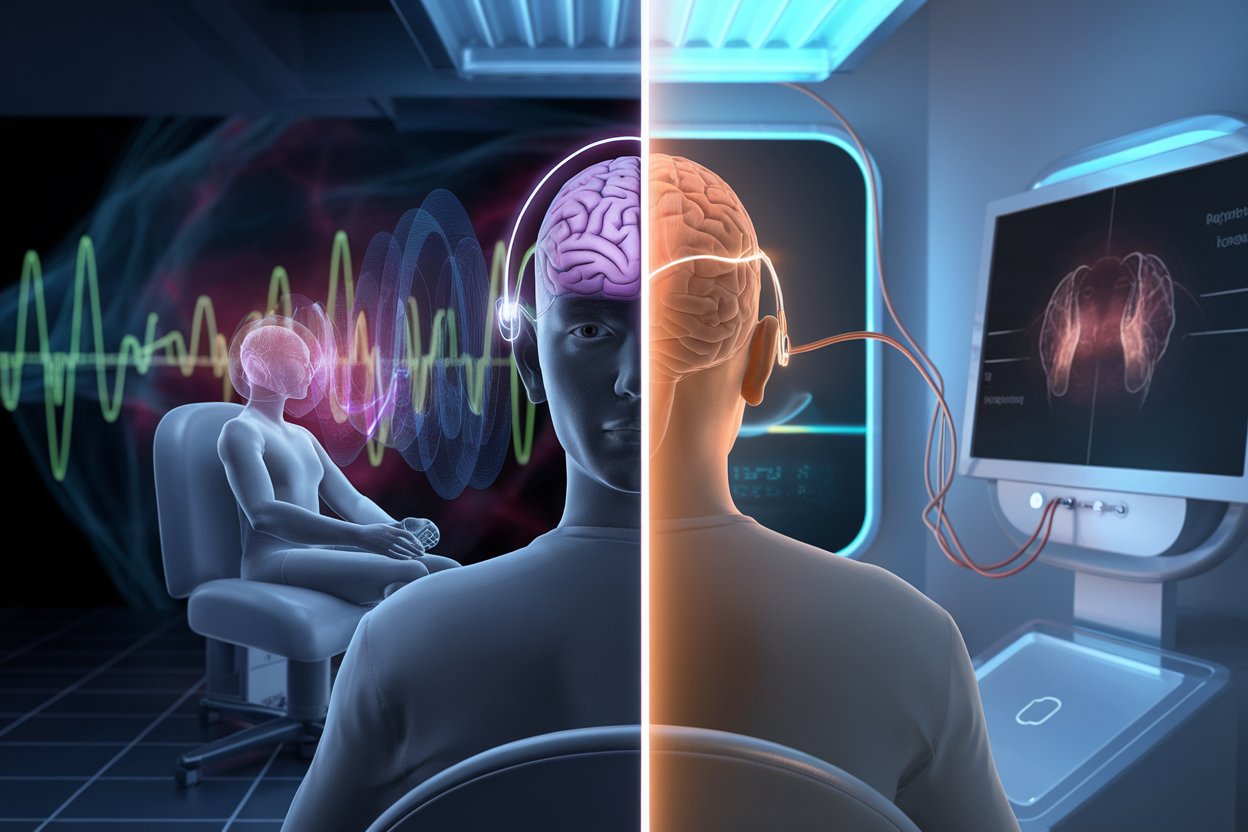Want to know more about a “TMS dip”? You should know what a TMS dip is before you start TMS therapy. This treatment is known as transcranial magnetic stimulation. Those who get TMS treatment sometimes feel a little worse before they feel better. This worst moment of the treatment session is called TMS Dip.
Understanding the TMS Dip
The brain needs time to get used to TMS therapy after you start it. While some people are getting better, they may feel a little down. An TMS dip is the name for this short-term change in symptoms. Your brain is working hard to change and get better.
How Long Can a TMS Dip Last?
The TMS dip can happen in the first few weeks of treatment, but it usually goes away as the therapy goes on. It can last anywhere from two to five days, and very rarely, it can last up to two weeks. After this time, most people start to feel better. Talk to your doctor if you care about anything. If your mood changes, you should let your healthcare provider know. They can make you feel better by changing things like your position, frequency, or intensity during TMS.
Does Everyone Experience a Dip?
There isn’t a TMS dip for everyone. The first week, a lot of people start to feel a little better; by the second week, they feel a lot better, and they keep feeling good until the third week. Some people may see a small drop in their positive assessment scores around this time, but they should eventually level off. In the event that you do experience a dip, it is likely to be short-lived and will pass.
Why Does a TMS Dip Happen?
Here are some things that might have caused the dip:
- Neuroplasticity: First, as the brain gets used to the changes that TMS makes to neural activity, symptoms may get worse for a short time before they return to normal.
- Brain Chemistry: Additionally, variations in people’s brain chemistry and TMS responses might be to blame for the dip.
- Past Trauma: Third, the drop seems to be linked to having experienced trauma in the past.
Your condition isn’t getting worse because of the dip, and it doesn’t tell us if TMS treatment will work for you in the end or not. In order for your brain to get better, it has to adjust to new things.
Benefits of TMS Therapy
Many people find TMS therapy very helpful, even though there is a chance of a TMS dip. With this, you can get better with depression, anxiety, and other mental health problems. Keep at it, and good things might happen.
Traditional treatments like medication and talk therapy don’t always work well for some people. TMS therapy is a non-invasive option that has been shown to help. Because it only affects certain parts of the brain, TMS does not have side effects that affect the whole body like medications do. A lot of patients see big improvements in their symptoms, and some even get better from their depression completely. Even though there is a short-term drop, TMS can have life-changing effects in the long run.
FAQs
How long can a TMS dip last?
Some people feel a TMS dip for the first few weeks of treatment. After this time, most people start to feel better.
Usually, the dip starts around the second or third week and lasts for a few days to a week. It can sometimes last up to two weeks. Since everyone’s experience is different, the exact length of time can change.
Why does TMS dip happen?
The TMS dip happens while the brain gets used to the new treatment. It is rewiring itself, which can make symptoms change for a short time.
Neuroplasticity, individual brain chemistry, and past trauma are some of the things that can cause the dip. Part of the brain’s process of adjusting is this short-term change.
What is the relapse rate for TMS?
When compared to other treatments, TMS therapy has a pretty low rate of relapse. Many people find that their symptoms go away for good.
Research has shown that TMS can have long-lasting effects. For example, many patients continue to feel much better months or even years after treatment.
Is TMS better than antidepressants?
If you don’t feel better after taking antidepressants, TMS might be a good choice for you. There are fewer side effects, and it doesn’t hurt you.
While antidepressants can have side effects all over the body, TMS only affects certain parts of the brain, so there is less chance of systemic side effects.
Contact American TMS Clinics Today
Are you ready to find out if TMS care will help you? Get in touch with American TMS Clinics right away to find out if you can get a free EEG and psychiatric evaluation. Welcome to our Phoenix, Arizona, mental health helpline. Our team is here to help you get better. Let’s make you feel better together!





